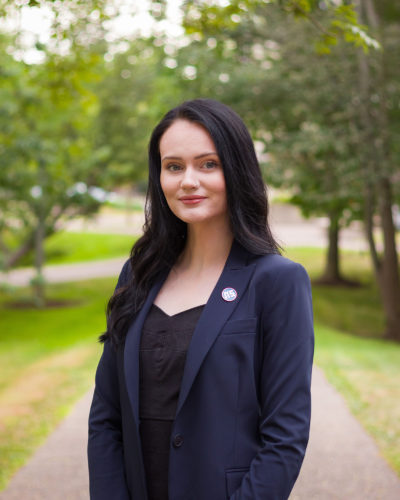Sex-trafficking can cause severe and unique forms of post-traumatic stress disorder; survivors reveal how they learned to cope and how they now help others.
By RACHAEL DYAL
Sitting in her law office, Vanessa Tynes-Jass recalls identifying her friend’s lifeless body for the police after a fateful attempt to escape their sex traffickers turned tragic.
“The radio news was on and they said they found a body…she was in the garbage can,” Tynes-Jass said.
Racing up an icy hill on a brutal winter night in Halifax, N.S. to escape sex traffickers was the last time Tynes-Jass ever saw her friend Kelly Whynott.
The now-successful family lawyer who works in King City, Ont. still feels guilty about what happened to her friend, even after almost 30 years.

Tynes-Jass was 17 and homeless when she landed in a Dartmouth rooming house where she first encountered the person who trafficked her, she said. Other girls also lived in the back of the rooming house with her. Tynes-Jass would see them doing their makeup and shopping a lot, only to find out later these women would travel to Halifax and go out with men who would pay them for dates, she said.
Tynes-Jass was forced into sex trafficking as a condition of staying in the rooming house. The sex trafficking lasted more than a year.
She said her emotions were completely disconnected while she was being trafficked.
“It was just pure survival mode for 18 months, especially after Kelly got killed,” she said.
The man who killed Whynott was later convicted and sent to prison, Tynes-Jass said.
Although this happened years ago, there are still a few mental hurdles she needs to overcome because of her past. She’s not alone.
A 2021 report published by the Canadian Centre to End Human Trafficking, said survivors and victims of human trafficking often suffer severe mental health-related trauma, like Post-Traumatic Stress Disorder (PTSD). PTSD is an anxiety disorder that can occur after a person has been through a traumatic event. The trauma some survivors experience is associated with ‘a significant amount of shame,’ major depression, anxiety and substance abuse, according to the report.
Some provinces like Ontario and Nova Scotia have recognized the severity of mental health issues facing survivors and have invested more money into counselling and outreach supports at a few anti-human trafficking organizations.
Survivors guilt
After successfully escaping her traffickers following several failed attempts (including the time she tried to escape with Whynott) Tynes-Jass still feared for her safety. She was afraid her traffickers would kill her.
“I lived in fight or flight for 25 to 30 years—I still do somewhat,” she said. “I don’t trust people. It takes me a while to trust people. I see the ugly side under every situation.”
Tynes-Jass also struggled with survivors’ guilt after being sex trafficked, even though she knows what happened to Kelly wasn’t her fault.
“I always said, ‘It should have been me,’” she said.
Slowly, she started to change the narrative as a way to empower other victims of sex trafficking.
“I thought, okay, Kelly gave her life for my life to move on, raise a wonderful child, get educated, become a lawyer…and I have to honour that,” she said. “That’s why I started telling my story. That’s why I said, I’m not going to care what people think about me because I am the woman I am today… because of the experiences I went through in those 18 months.”
No sleepovers for her daughter
Tynes-Jass, said she is triggered sometimes because of what she’s been through.
“There’s things that I get triggered about…but I handle it much differently from you know, lots of therapy. Lots of therapy over the years,” she said.
Therapy helped her through a deep depression she suffered after Kelly’s death and after escaping sex trafficking.
“The reason why I can talk about it [her experience] is because of that treatment. I wasn’t ever able to talk about the memories without ruining two days of my life, you know, going into a depression,” she said. “So I handle it much different now.”
But there are a few things that Tynes-Jass is still extremely cautious about, especially when it comes to her kids.
After being exploited at a young age Tynes-Jass understands how vulnerable young women can become involved in sex trafficking, she said.
“I don’t let my daughter go to sleep overs—never will,” she said. “That’s a little extreme, but it’s because I see the other side of what happens. I’ve seen it.”
Grounding exercises and triggers
Nikki Dube, a counsellor and crisis worker at an Indigenous organization in northern Ontario, said when she speaks to survivors or women currently being trafficked who have PTSD or extreme anxiety, she usually shows them exercises that can help them focus on the present.
“Grounding exercises can help in the moment. So, there’s quite a few, you know, activities like the naming five senses—name five things you can see, hear and taste,” she said.
Speaking with Dube about their experiences can help some women suffering from severe flashbacks.
“I was working with a woman who had extreme PTSD, waking up with nightmares, flashbacks, feeling like she’s being choked, all that kind of stuff. So with her in particular, a lot of times just being able to speak with me…would ground her and bring her into the present,” Dube said.
Knowing what triggers someone is also really important when making suggestions to help them cope with PTSD, said Dube.
“First of all, we have to learn what their triggers are, not assume them,” she said. “People will say ‘you should do yoga,’ but yoga can be very triggering. If I’ve been raped standing with my butt in the air is not going to be a safe spot for me, and it’s going to trigger me.”
Dube often likes to use empowerment theory as well to help some women feel good about themselves.
“In every conversation I have, before I get off the phone, I will always remind them about something they did specifically that made them who they are in a positive way,” she said.
Telling someone that they are an incredible person for still being kind to others despite being treated poorly, could be powerful and help them cope with everything she said.
Moving forward
Clancy McDaniel, executive director of Students Nova Scotia, fell victim to sex trafficking after attending a bar in Montreal.
Her drink was laced by someone she met at the bar and as a result, he forced her to get into a cab where she was then taken to an apartment complex and sexually assaulted multiple times, she said.
McDaniel was held captive for 24 hours and was fed drugs to keep her unaware of her surroundings. She told The Signal she was paraded naked from room to room and saw brief glimpses of other women at the complex. Eventually, she was able to text a friend her location after tricking her trafficker and was rescued by police.
“My perception of the world has improved since that happened, but certainly right after, it was pretty bleak,” she said.
She now talks more about mental health concerns caused by the 2016 trauma in Montreal.
McDaniel goes to therapy regularly for what’s known as Eye Movement Desensitization Reprocessing (EMDR) treatment.
“It’s a way of helping those who’ve gone through pretty traumatic experiences to relive some aspects of the experience in a way that helps you get climatized to it,” she said.

She admits that she does think about what happened to her quite a bit, and at one point found it hard to live alone, she said.
“I was living by myself and I found that really triggering, particularly at night. Or when I had been living on the ground floor of the building at one point, I also found that really triggering,” she said.
McDaniel said therapy has been really helpful and she encourages sex trafficking survivors who are struggling with the past to not be afraid and seek counselling.
“Definitely, if you have health insurance or the means to seek counseling, do so. And if not, try to get into community counseling or free counselling,” she said.
It’s not always an easy road to recovery, but it becomes easier if someone receives the adequate help needed, she said.
“The therapist that I started with last year in 2020, is probably the best I’ve had. I’ve been going to counseling for four years, and I felt like I’m making real progress only this past year,” McDaniel said. “But that being said, recovery is worth it and getting adequate support is worth it.”
The road ahead
McDaniel is heading to the University of Victoria in B.C. to study law in September. She will be leaving her position as the executive director of Students Nova Scotia in the summer, but hopes she’ll still be able to advocate about human trafficking in Canada or sexual violence while attending law school.
She always takes opportunities to speak about her experience if it will help others. And despite what she’s been through, she’s optimistic for the future, she said.
“I’m never going to be able to erase that it happened, but I’m proud of the progress that I’ve made,” she said.
Tynes-Jass is also grateful she has the opportunity to share her story with others.
“There became a point in my life when I realized that my story was not a story of victimhood. It was an amazing story of survival,” Tynes-Jass said.
She tells people who are currently being exploited that there is still hope.
“They don’t know the end of their story; this is not the end of the story.”
